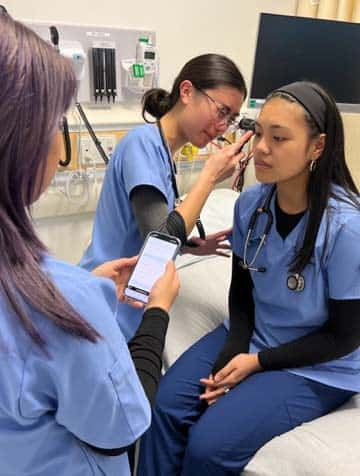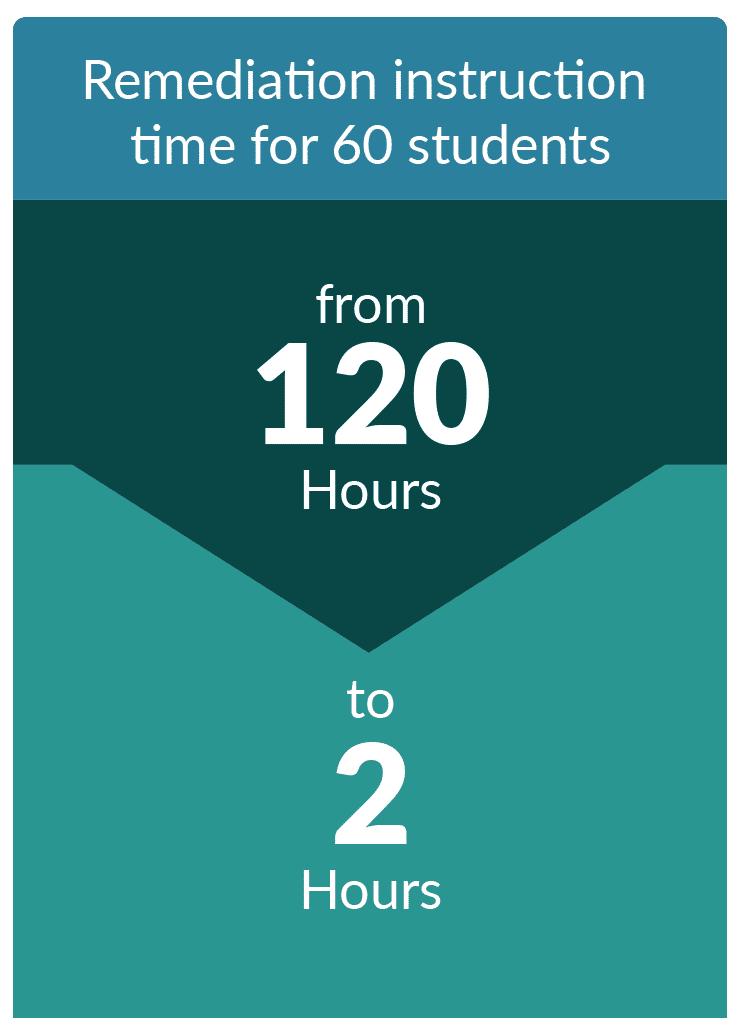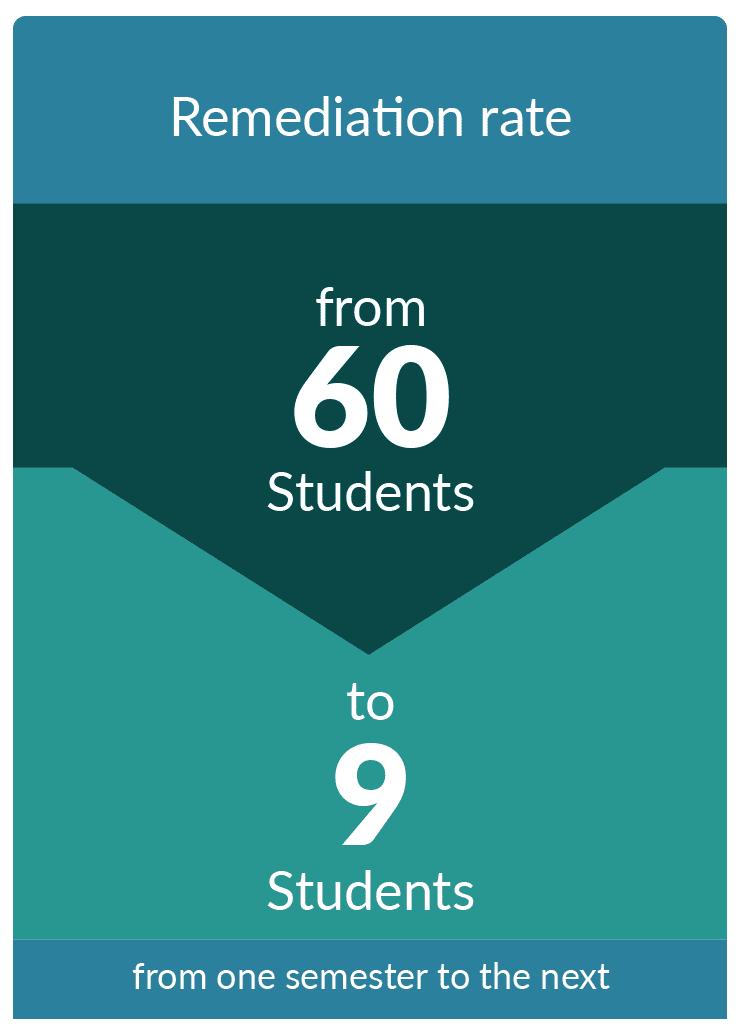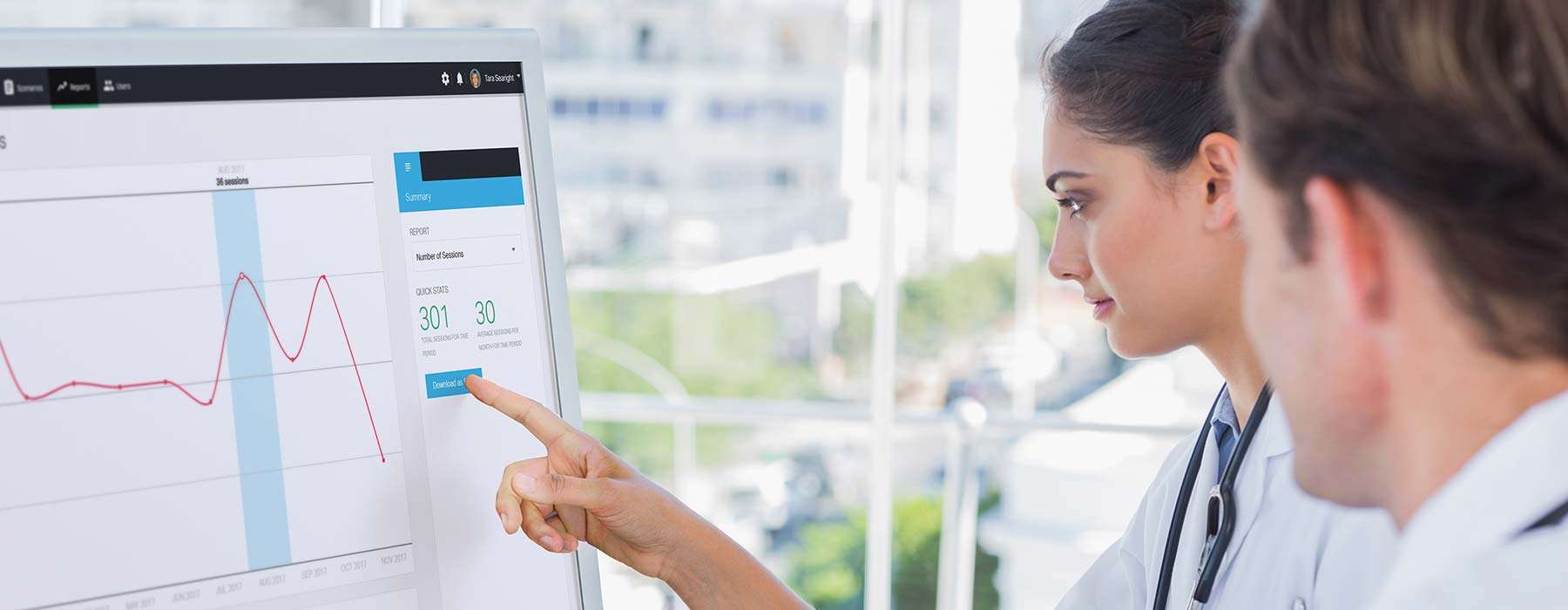Transforming Skills Mastery With Peer-to-Peer Learning
Customer Story

Customer Story

Implementing an innovative approach of peer-to-peer learning using SimCapture for Skills helped UMass boost first-time pass rates and refine their remediation process.

UMass Boston’s Center of Clinical Education & Research primarily serves around 600 undergraduate nursing students in its lab.
The Challenge
Nursing programs are facing increasing pressure to prepare their students to successfully transition to practice. To help ensure student readiness, the University of Massachusetts in Boston has recently been focusing on assessment and evaluation of their simulation program and how they are linking to clinical practice.
“Using data and evaluations to measure students’ performance can help ensure they’re meeting the objectives we're telling our clinical partners they are competent in,” explains Rosemary Samia, MSN, RN, CNS, CHSE, Director for the Center of Clinical Education & Research at UMass Boston.
- Rosemary Samia, MSN, RN, CNS, CHSE
Director, Center for Clinical Education & Research, University of Massachusetts Boston

Rosemary wanted to make sure the data they were collecting was meaningful – not just reports and spreadsheets – and would ultimately help them be sure their students were building the competencies they needed for practice. "We should be able to see the progression of our student learners getting better," Rosemary says. "We want to make sure that they are progressing in a way that, when they graduate, they are safe beginners."
The solution

For skills training in the health assessment and fundamentals of nursing courses, Rosemary and her team decided to adopt SimCapture for Skills: a solution that brings faculty closer to students by combining the effectiveness of the peer-to-peer learning methodology with digital assessment and evaluation tools.
Students were divided into groups of 3 to practice a specific skill, such as cardiovascular assessment. They completed a round robin: each student took turns being the learner, the facilitator, and the patient. This gave them repetitive exposure to the skill as they performed it, assessed and evaluated another student performing it, and had it performed on them. Hint text programmed into the checklists helped students stay on task and make accurate assessments of their peers.
Looking at student test scores after implementing this approach, Rosemary found that the lab faculty who used peer-to-peer on a regular basis had students with much higher first-time pass results than other groups. And, overall remediation rates dropped significantly.
At UMass Boston, nursing students must pass their nursing skills checkoffs at 100%. “We have a high benchmark at UMass,” explains Rosemary. “If the students don’t meet that benchmark, then they have to come back into the lab.”
Before students are allowed to test again, they must complete mandatory remediation training. In the past, remediation was a very time-consuming process: small groups of 1 or 2 students would meet for 2 hours with a graduate student.
Like all the other nursing schools currently struggling with faculty shortages and growing cohorts, UMass eventually found that their remediation process was no longer sustainable. "As our courses got bigger, we didn’t have the time, the space, [or] the faculty to deliver the amount of remediation needed," she recalls.
They needed to find a way to remediate more students with fewer faculty – without compromising remediation quality.
In a recent semester, 160 students took a health assessment midterm – and 60 of the students didn’t pass with the required 100%. Rosemary and her team decided to try utilizing SimCapture for Skills to remediate these students more efficiently.
Facilitated by 2 graduate students, 30 students came into the lab at a time and were separated into groups of 3 to practice peer-to-peer. At the end of the hour, the students retested on the skill.
The results were immensely successful: 51 of the 60 students passed after 1 hour of remediation using SimCapture for Skills.
They had found a way to effectively remediate 30 students per hour with fewer faculty. With the old remediation process, this would’ve required 120 hours of remediation instruction time.
“We saw tremendous success,” Rosemary says. “It decreased the time that we needed to spend on remediation and reserving lab space.”



SimCapture for Skills has facilitated ongoing improvement in teaching at UMass by providing meaningful performance data on students’ progression in the weekly labs.
Using data from SimCapture for Skills’ electronic checklists, faculty can see where students are having the most trouble so that they can tweak their teaching the following week. And, the tool provides visibility into how students are utilizing their practice time.
"We've had a significant improvement in the teaching that has been delivered," Rosemary tells us.
UMass is also leveraging assessment and evaluation data in their high-fidelity simulations. "We start with their psychomotor skills in the lab and then we extrapolate that into the simulation," she explains.
And, the data they’re collecting isn’t limited to faculty assessing students – but also students assessing faculty using vetted tools after their simulations, as well as faculty assessing each other.
"We can really make big changes," she says. "Faculty are able to take that data and see where there is room for improvement and where their strengths are. And once we capture that, we can pair faculty together, we can put students who are really strong in one area together, [and] we've got a whole nurse mentor program that has come out of this. It can take on a life of its own."
"Your data really does tell a story," Rosemary asserts. "But you have to be able to read what the data is telling you – and then do something with it."
Students can practice together to acquire skills mastery.
Peer-to-peer learning paired with performance data can help tackle the challenges of growing cohorts, limited lab space, and fewer faculty.
From skills practice to high-fidelity simulations, assessment and evaluation data tells a meaningful story.
If you're interested in getting started with utilizing more data in your program, Rosemary's expert tip for you is to start small.
"Look at what you’re already collecting. Is it on paper? What are you doing with it? Maybe a transition to an electronic capture would be easier for you to analyze that.
Start with something that is manageable. You're not going to be able to do everything all at once – but just pick one thing, start there, [and] make changes. Don’t feel like you have to get it right on the first try. [Our program] has been two years in the making, and we're constantly changing things for the better."

pdf | 1.79 MB
A Brief Introduction to the Concept, Pedagogy and Research By: Michael Sautter and Brynjar Foss April 2020
Sign up for Laerdal Medical email updates. You can identify your interests and receive new educational content, updates, event information and more.